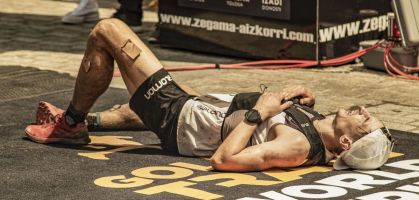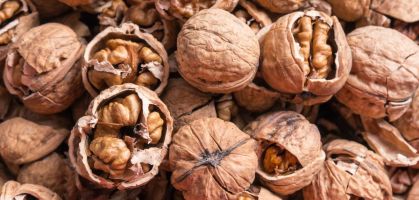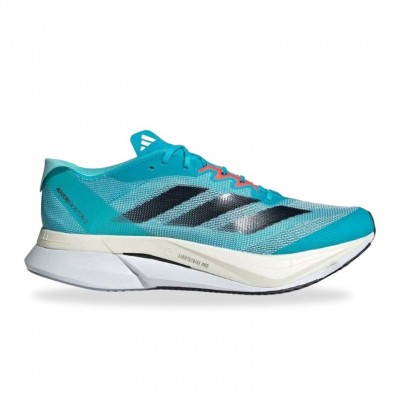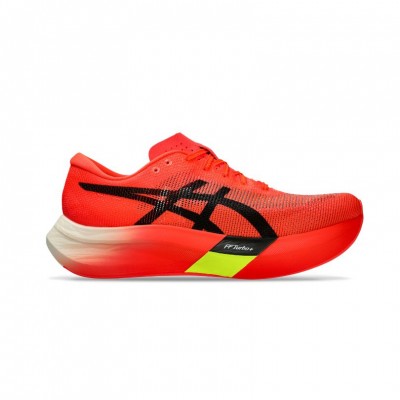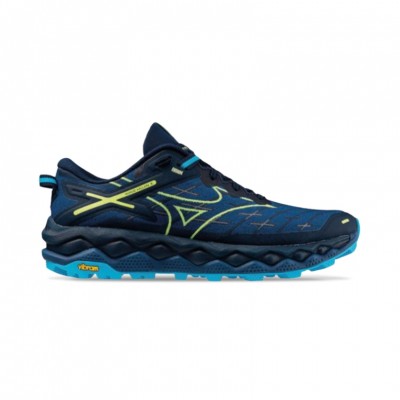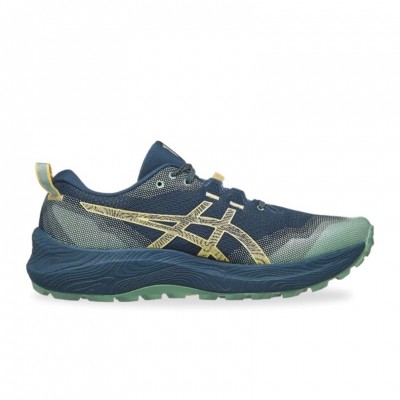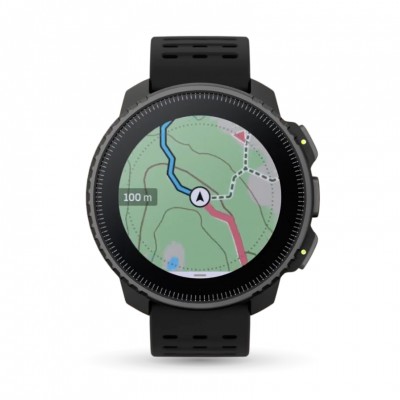Muscle mass plays an important role in many aspects of our overall health, including our mental and physical strength, organ function, healthy aging, and maintaining an active lifestyle.
For runners, the benefits are endless, and research has shown that building muscle can improve your performance and help prevent injury. We caught up with Alan Ladd, a nutritionist and running coach, to find out how carbohydrates can help runners build and maintain muscle mass, as well as how to structure fueling around training sessions.
Not sure which shoe to choose?
In a few simple steps we help you to choose the ideal running shoe for you.
GO TO THE RECOMMENDERWhy is muscle mass important?
Muscle contributes to our general physical and mental well-being.
- The presence of metabolically active muscle tissue contributes to maintaining metabolism and burning calories even at rest, which facilitates the maintenance of a healthy body weight and counteracts fat accumulation.
- Good muscle mass is also crucial for maintaining strength and physical endurance, which are necessary not only for daily activities but also for improving sports performance and preventing injuries.
- Increased muscle mass can improve bone density, which is particularly important as we age, and can decrease the risk of fractures.
- It also contributes to improving insulin sensitivity and blood glucose control, which are essential in the prevention and management of conditions such as type 2 diabetes.
- Finally, maintaining good muscle mass often leads to improved posture and a general sense of well-being, as muscles support the skeletal structures of the body, contributing to stability and preventing muscle pain and postural problems.

Why is muscle mass important for runners?
Having good muscle mass is important for running performance over all distances. “For shorter events," Ladd explains, “muscle mass gives you the power for intense work, whereas for long-distance runners, it provides the endurance to maintain good form and running efficiency.”
Increased muscle mass has the following advantages:
- Improved strength, endurance, and overall performance: although running is primarily an aerobic activity, having good muscle mass helps provide the strength and endurance needed to maintain a sustained effort. Leg muscles, such as the quadriceps, glutes, and calves, are especially important for pushing and supporting the body during running. The stronger they are, the more power and speed they will provide.
- Injury prevention: running overloads joints and soft tissues. Having strong muscles helps protect joints and reduces the risk of injuries such as muscle tears, strains, and overstretching injuries.
- Stability and control: the core muscles (abdominals, lumbar, and gluteal) are crucial for maintaining body stability during running. Good muscle mass in these areas improves movement control and reduces the risk of posture- and stability-related injuries.
- Faster recovery: well-developed muscles can promote faster recovery after exercise, reducing the risk of muscle fatigue and soreness after training.
- Boosts your metabolism: having good muscle mass helps maintain an efficient metabolism, which helps control weight in the long term.

The importance of carbohydrates in increasing muscle mass
Everything we eat is made up of some form of macronutrient, which include carbohydrates, proteins, and fats, and they’re all essential for supporting muscles on a run, fueling energy levels, and for the everyday functioning of your brain and body. The relative proportions of macronutrients that your body needs will depend on your body size, type, and activity levels.
It’s easy to get caught up in the idea that gains in muscle mass depend primarily on protein intake; however, as Ladd explains, “Protein makes up the building blocks for muscle building, but carbohydrates provide the energy for the process.” In other words, if we don't get enough carbohydrates, our bodies won't have the fuel to build muscle.
Ladd stresses the importance of a balanced diet with sufficient amounts of carbohydrates, combined with a structured running and strength training programme, in order to effectively and safely increase muscle mass. “If runners don’t consume enough carbohydrates, the body can’t function correctly due to muscle glycogen stores becoming too low. If you’re depleted of energy, your body goes into stress mode, causing inflammation. Alongside the muscle breakdown and microtrauma that isn’t being repaired, this can lead to a higher chance of getting injured the next time you train.” This is a phenomenon that Ladd has seen all too frequently in the runners he supports: “The middle of a training block can feel long and intense, especially when preparing for longer distances such as a marathon, and insufficient fueling can lead to slow recovery, feeling run down, and lower performance.”
Here’s why carbohydrates are important for muscle building:
- Energy: carbohydrates are the body's main source of energy, especially during exercise. Energy from carbohydrates allows you to sustain intense training, which is crucial for stimulating muscle growth.
- Muscle maintenance: during aerobic training, carbohydrate reserves are mainly used. When these are no longer sufficient, the body starts protein catabolism, i.e., it begins to break down the proteins inside the muscle to obtain the energy it needs. Therefore, a lack of carbohydrates causes a decrease in muscle tone and a deterioration in performance.
- Muscle repair: after a workout, muscles need time to repair and grow. Carbohydrates help replenish muscle glycogen stores depleted during exercise and provide the energy substrate necessary for muscle protein synthesis.

The best sources of carbohydrates for increasing muscle mass
In terms of carbohydrate intake and healthy eating, Ladd says that in general we should favour complex carbohydrates, such as those found in whole grains, pulses, fruits, and vegetables, over simple carbohydrates, such as refined sugars and processed foods. Complex carbohydrates allow a more gradual and long-term absorption of energy and have a low glycemic index that does not favour the storage of fat mass.
- Whole grains: quinoa, brown rice, spelt, and oats are rich in essential nutrients that promote muscle growth.
- Pulses: beans, lentils, and chickpeas provide a combination of protein and carbohydrates, ideal for muscle repair.
- Fruits and vegetables: bananas, sweet potatoes, spinach, and other colourful vegetables are sources of simple and complex carbohydrates, as well as being rich in antioxidants that promote muscle recovery.
However, Ladd advises runners to consume simple carbohydrates, such as dried fruit or gels, when fueling during training sessions, as they provide an immediate spike in energy and don’t overload the digestive system.

When should you consume carbohydrates?
To maximise the benefits of carbohydrates on muscle development, it is important to plan your intake strategically and adjust it according to your energy needs. Although it is true that running performance can be limited by insufficient fueling, the opposite can also be true. A mistake that Ladd often observes in beginner runners is a tendency to overcompensate their fuel intake, leading to an increase in fat storage. On average, you burn between 80 and 100 kcal per mile, which may not add up to as much as you expect when completing slower or shorter training runs.
Read on for some quick and easy carbohydrate-rich dishes to consume before, during, and after your training. You can tailor the recipes to your personal preferences and nutritional goals, taking care to maintain a proper balance of carbohydrates, proteins, and fats in order to optimise performance and muscle recovery.
Pre-workout
You should consume a source of complex carbohydrates about two hours before training to ensure adequate energy intake. Ladd’s go-to breakfast before an easy training run is porridge made with plant-based milk. When padded out with nuts, seeds, fresh or dried fruit, or even protein powder, the dish is packed full of energy, vitamins, and minerals to set you up for the day. Other great breakfast options are:
- Whole-grain toast with avocado or peanut butter
- Yoghurt with granola and fruit
- A protein shake loaded with fruit and vegetables, such as spinach and bananas
If your training session isn’t in the morning, here are some great pre-run snacks and light meals:
- Chickpea hummus with crudités
- Bean Burrito, with black beans, brown rice, avocado, and vegetables in a whole wheat tortilla
- Baked sweet potato with feta, spinach, and tomatoes
Before a race or a really hard training session, Ladd advises consuming lighter, refined carbohydrates for ease of digestion, such as cornflakes or toast with jam.
During your workout
For prolonged or intense sessions, Ladd recommends fueling during your run: “A low-intensity session can be fuelled primarily off fat if necessary; however, as the intensity increases or if the session lasts more than an hour, carbohydrates are essential. Otherwise, you run the risk of your body beginning to break your muscles down into amino acids in order to sustain the effort." You’ll need to supplement energy with fast-absorbing carbohydrates, which provide an immediate boost in energy levels. The best sources are:
- Dried fruit: dates, dried figs, chestnuts, mangoes, apricots, ginger, etc.
- Energy gels: these are mainly composed of simple carbohydrates such as glucose, fructose, and maltodextrin, often with other active ingredients such as caffeine, amino acids, and electrolytes.
If your run is of moderate intensity and under an hour long, then your pre-exercise meal will be more than enough to get you through.
Post-workout
Even if you’ve fueled sufficiently before and during your run, Ladd stresses the importance of replenishing your body’s glycogen stores within the hour after your workout. “Running subjects your muscles to a great deal of pounding and microtrauma," he says, "which subsequently needs to be repaired by muscle protein synthesis. Ideally, you should be aiming to consume carbohydrates along with some protein soon after your workout to optimise recovery. This is especially true after a long run, which could potentially add up to a whole day’s worth of food.”
Ladd recommends eating a full meal if possible, made up of whole grain nutrient-rich carbohydrates and accompanied by a source of protein. Here are some ideas:
- Quinoa salad with peppers, cucumbers, tomatoes, and black olives, dressed with olive oil and lemon.
- Sweet potato and lentil shepherd’s pie
- Whole-grain pasta baked with tomato sauce and vegetables
- Chilli con carne with whole-grain rice
Some runners find it hard to eat a full meal after an intense workout, and in this case, Ladd believes that it’s okay to revert to a snack made up of simple or refined carbohydrates, as the priority is to get some energy back in the system in order to start the recovery process. You can follow up with a larger meal when you’re ready.

In conclusion
To be a successful runner, gaining and maintaining muscle mass are essential aspects of your running performance. The correct balance of nutritious carbohydrate sources, proteins, and fats, paired with an in-depth training plan, will help you get the most out of your running.
Each individual has specific needs that depend on a variety of factors, such as lifestyle, genetics, and training load. To achieve your goals, we recommend that you work with a professional to develop a personalised dietary plan.

Alan Ladd is a qualified nutritionist and running coach based in Belfast. His personal accomplishments as a marathon runner and years of professional experience have given him a wealth of knowledge that enables him to accompany runners in all aspects of their training.
You can contact Alan via his website or Instagram to arrange an online consultation. His Running Rules podcast covers a diverse range of topics related to running performance, and is geared towards supporting runners in their training, nutrition, and mindset.
Read more news about: Nutrition



